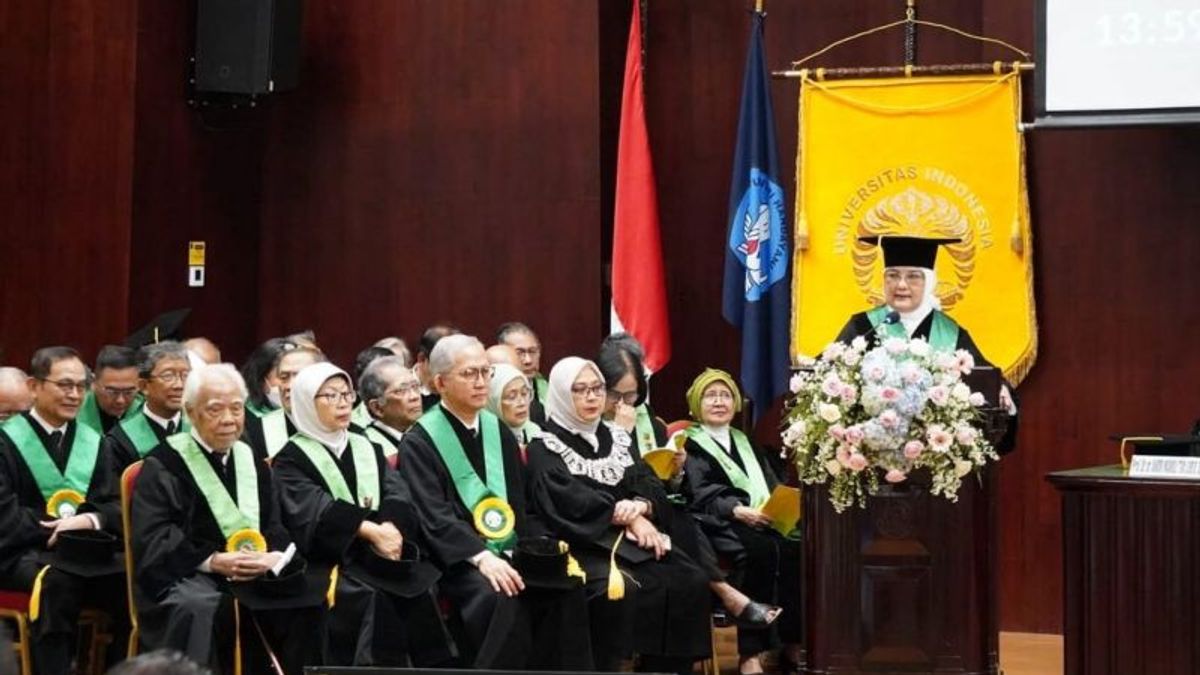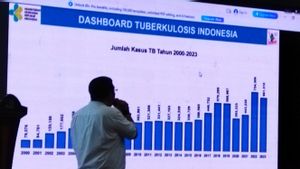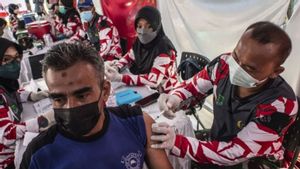JAKARTA - A Permanent Professor in the Field of Pulmonology and Medical Respiration of the Faculty of Medicine, University of Indonesia (FKUI), Prof. Dr. Dr. Erlina Burhan said there were 385 Tuberculosis (TB) patients in Indonesia who died every day.
"The total number of TB patients (in Indonesia) who died for a year was 140,700, meaning that 385 patients died every day or 16 people died every hour due to TB," he said in an official statement in Jakarta, Sunday.
Erlina revealed that the figure was obtained through the 2023 Global TB Report, which was launched by the World Health Organization (WHO), which stated that in 2022 the mortality rate for TB patients without HIV and TB with HIV in Indonesia in a row was 134,000 and 6,700 cases.
In the previous edition, he said, the report also stated that there were 834,000 incidents (new cases) in Indonesia in 2010, an increase to 842,000 in 2019, and the peak reached 1.660,000 cases in 2022.
SEE ALSO:
According to Erlina, the TB problem has increased due to the lack of optimal case findings, thus becoming a source of transmission in the community, as well as low compliance with TB patients in treatment which causes increased risk of TB drug resistance.
"In addition, in the field of socio-economics, TB patients face stigma, discrimination, and miss opportunities to study, work, and society," he said.
Erlina said that in an effort to end the TB epidemic in 2030 and suppress TB cases of less than 1 case per 1 million population by 2050, Indonesia carried out efforts to eliminate TB in line with the TB Strategy End Program initiated by WHO.
The three main pillars in the program, he continued, include TB integrated and patient-centered services and prevention, policies and political commitments in the health sector for TB elimination in Indonesia, as well as research and innovation in addressing TB-related challenges in Indonesia in order to achieve the target of reducing the TB mortality rate by 90 percent, reducing TB cases by 80 percent, and eliminating the cost burden borne by TB and family patients by 2030.
"This target will not be achieved if the community is still doing business as usual," he said.
According to Erlina, in an effort to eliminate, the government and the public can learn from the success of handling COVID-19 in Indonesia.
Therefore, he assessed that TB management must involve all existing instruments, as well as collaboration is needed that involves awareness and motivation of various parties, such as the President and Vice President, ministers, regional heads, business actors, professional organizations, religious and cultural communities, and educational institutions to create the 2030 TB elimination orchestration.
The English, Chinese, Japanese, Arabic, and French versions are automatically generated by the AI. So there may still be inaccuracies in translating, please always see Indonesian as our main language. (system supported by DigitalSiber.id)
















